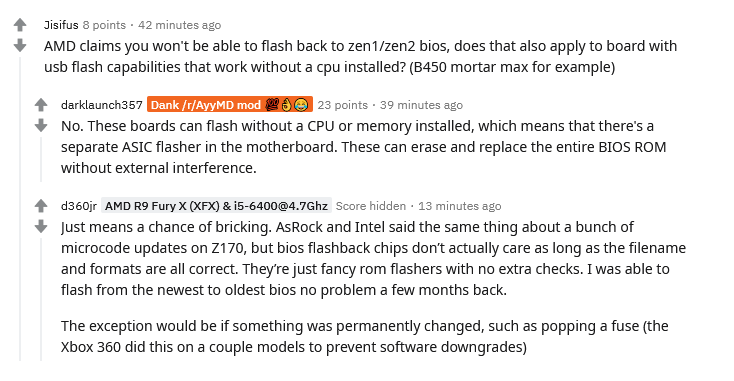bigdogchris
Fully [H]
- Joined
- Feb 19, 2008
- Messages
- 18,707
Maybe they will keep 3000 series in ROM with 4000 series. But how would they decide which legacy CPU's to keep in ROM? You could probably make the argument for each series. Maybe keep the most common of each series if possible? Who knows.Probably depends on what CPU you use to flash with.
![[H]ard|Forum](/styles/hardforum/xenforo/logo_dark.png)
